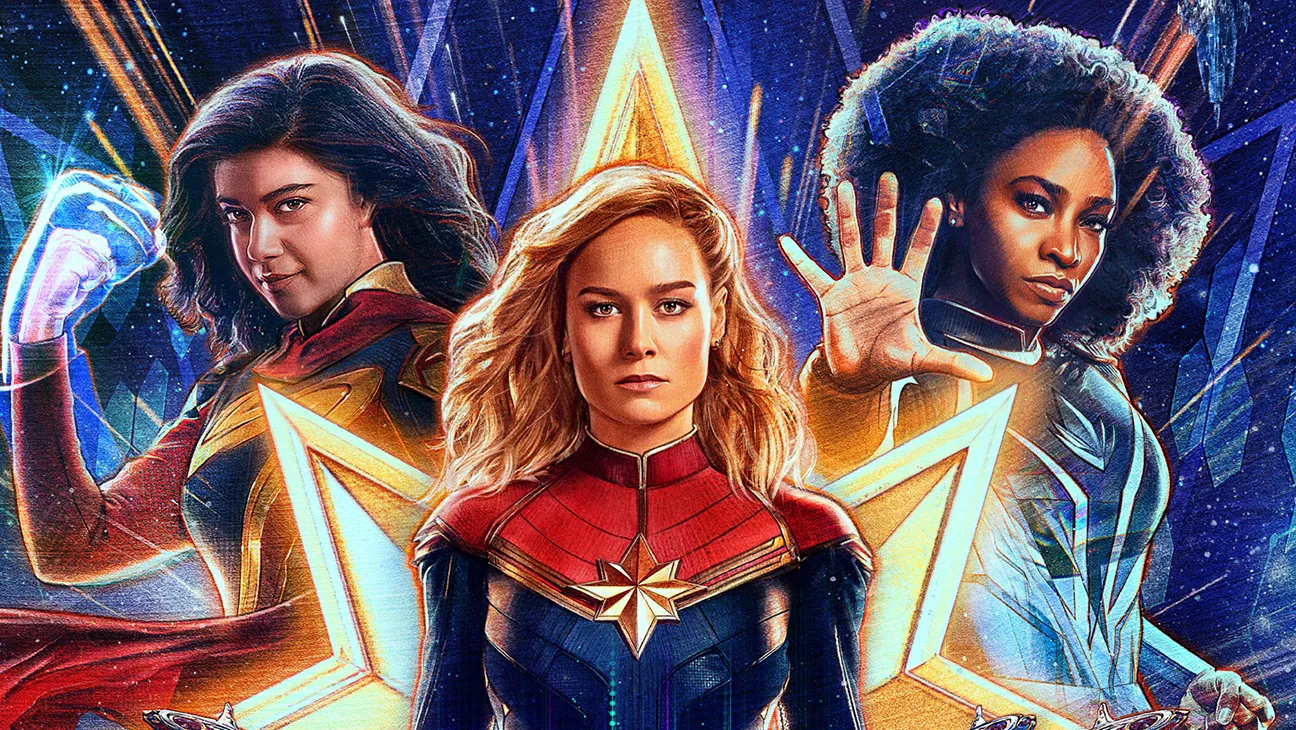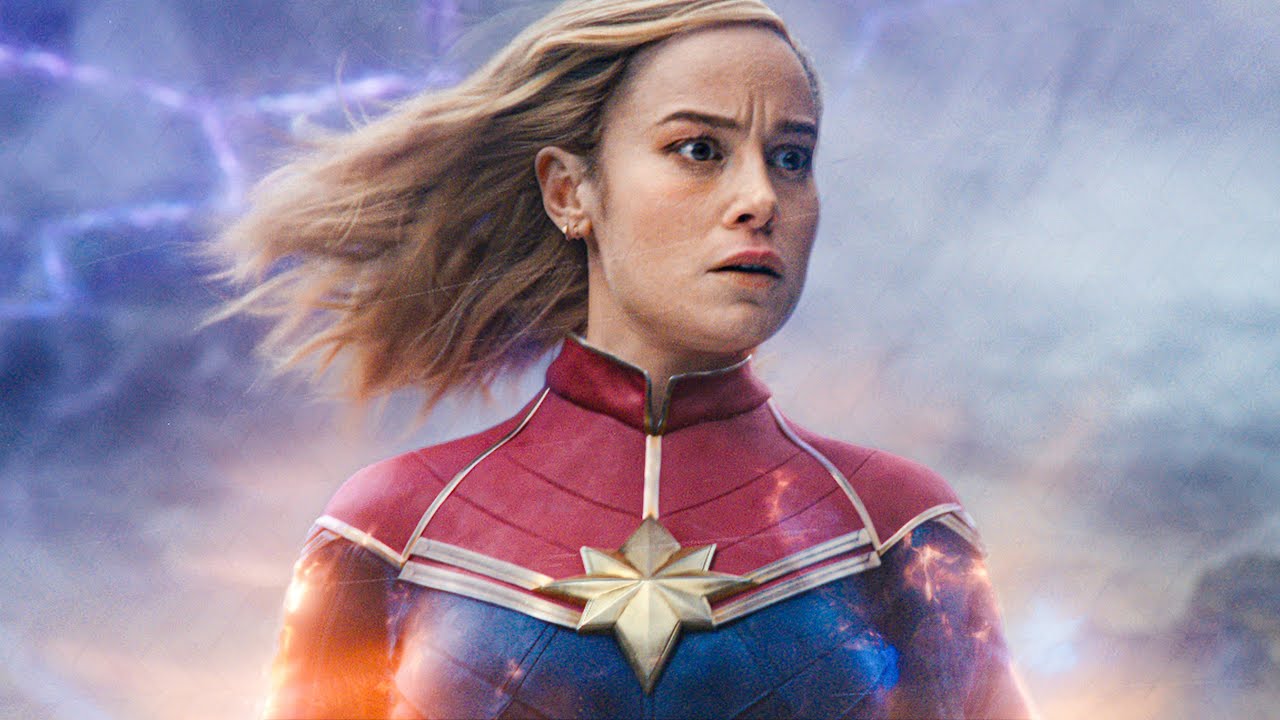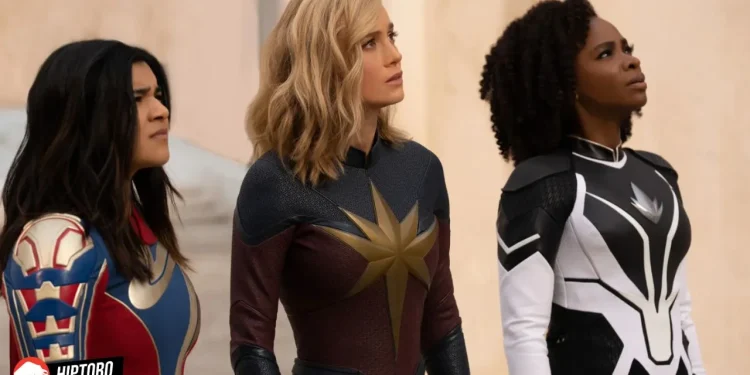Captain Marvel’s presence in the Marvel Cinematic Universe has become a focal point for discussions surrounding representation and identity. Brie Larson’s portrayal of Carol Danvers has elevated the character to cultural icon status, sparking vibrant conversations within the fan community.
With the release of The Marvels, the latest installment in the Captain Marvel saga, speculation and hope regarding the character’s sexuality have been reignited. The film presents a nuanced exploration of queer subtext, offering a departure from the franchise’s often criticized heteronormative narratives.

The Queer Subtext of Captain Marvel
Since her high-flying debut in 2019, Captain Marvel has been a beacon of strength, resilience, and independence. Unlike many of her MCU counterparts, Carol Danvers’ story is notably devoid of romantic subplots, a decision that, while refreshing, has also opened the door to deeper interpretations of her character’s personal life. The Marvels, with its inclusion of Tessa Thompson’s Valkyrie—a character confirmed as queer within the MCU—has reignited discussions about Captain Marvel’s own sexuality.
The dynamic between Carol and Valkyrie in The Marvels teases at more than mere camaraderie. From meaningful glances to a cheek kiss departing from typical MCU platonic fare, the film flirts with the idea of a past or potential relationship between the two heroes. While not explicitly confirmed, these moments serve as “breadcrumbs,” inviting queer audiences to see themselves within the superhero genre.

Captain Marvel and Valkyrie: A Sapphic Reading
The interaction between Carol and Valkyrie in The Marvels hints at a past intimacy not often afforded to mainstream superhero narratives. The use of “friend” to describe Valkyrie, along with the intimate gestures shared, aligns with a long-standing tradition of coding queer relationships in media. Such subtleties resonate with viewers attuned to picking up on these cues, offering a sliver of representation in a landscape starved for LGBTQ+ visibility.
Moreover, a rumored deleted line—”We work better as friends”—suggests that a more explicit acknowledgment of their relationship was considered. This move, while ultimately not making it to the final cut, indicates a growing awareness within Marvel Studios of the importance of queer representation.
Beyond Subtext: The Politics of Representation
The MCU’s dance with LGBTQ+ representation has been cautious at best. While Eternals and certain elements of other films have begun to introduce queer characters and relationships, the franchise has yet to commit fully to representing its heroes’ diverse sexualities in a central, undeniable manner. Captain Marvel’s “marriage of convenience” on the water planet Aladna further complicates her narrative, offering a glimpse into a potentially queer backstory cloaked in political necessity.
Brie Larson herself has been a vocal advocate for faster and more inclusive representation within the MCU, highlighting the need for superheroes that reflect the diversity of their audience. Tessa Thompson’s comments about Valkyrie finding her queen underscore a shared desire among cast members to see their characters’ queerness explored on screen.
brie larson as captain marvel they will never love you like i do pic.twitter.com/oHd4iVhtup
— or (@danvrsgf) February 8, 2024
The Future of Queer Representation in the MCU
While Captain Marvel’s sexuality remains unconfirmed within the MCU, the discourse surrounding her character reflects a broader hunger for inclusive storytelling. The Marvels, through its subtext and the interactions between Carol and Valkyrie, contributes to a gradual but significant shift towards embracing LGBTQ+ identities within mainstream superhero narratives.
As audiences, we stand at the precipice of change, advocating for a future where superheroes can openly represent the full spectrum of human experience. Captain Marvel’s journey, both on-screen and in the hearts of fans, underscores the power of visibility and the importance of pushing for a world where every hero, regardless of their sexuality, can find their place in the spotlight.
The Marvels serves as a testament to the evolving landscape of superhero cinema—one where the possibility of a queer superhero queen isn’t just a dream, but an impending reality. As we look forward to the future of the MCU, let us hope for narratives that boldly embrace diversity, offering a beacon of hope and representation for all who find solace in the world of superheroes.










